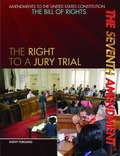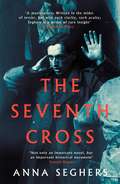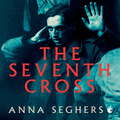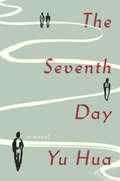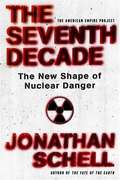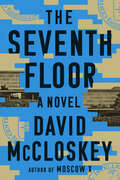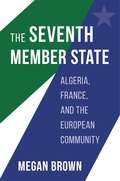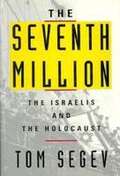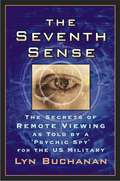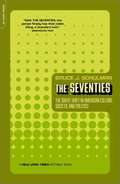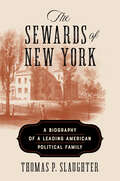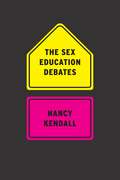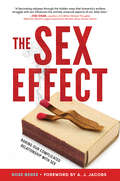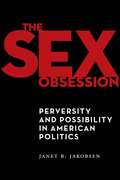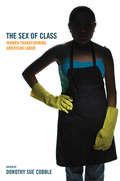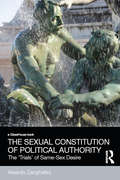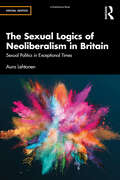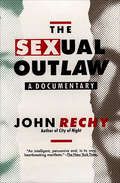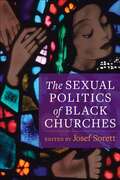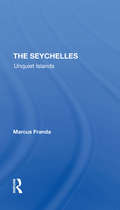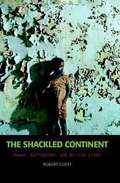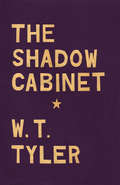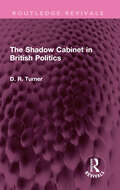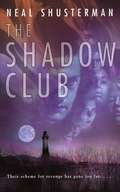- Table View
- List View
The Seventh Amendment: The Right To A Jury Trial (Amendments To The United States Constitution: The Bill Of Rights)
by Kathy FurgangWhile jury trials in criminal cases are recognized as vitally important to safeguarding the Constitutional rights of the accused, the right to a jury trial in civil cases is a less understood, celebrated, and valued right. This book is an invaluable reminder of just how important the Seventh Amendment is to the promotion and preservation of fairness and justice in America. By entrusting a jury of ordinary and impartial citizens to decide the outcome of lawsuits, the framers of the Constitution and Bill of Rights removed the power from the judges, who could potentially be swayed and corrupted. The Seventh Amendment levels the playing field, guaranteeing that a citizen's voice and interests carry as much weight as that of a wealthy individual, major corporation, or powerful government. The historical context that motivated the drafting and passage of this amendment is discussed, as is the evolution of civil law, jury trials, and the application of the Seventh Amendment in American history, from colonial times to the present. Contemporary, straight from the headlines cases-including Toyota's recent woes-illustrate the relevance of the Seventh Amendment and its application to cases involving consumer protection, environmental cleanup, medical malpractice, and corporate wrongdoing.
The Seventh Cross (Virago Modern Classics #779)
by Anna Seghers'At once a suspenseful manhunt story and a knowing portrait of the perils of ordinary life in Hitler's Germany, The Seventh Cross is not only an important novel, but an important historical document. This new, unabridged translation is a genuine publishing event' - Joseph Kanon, author of 'The Good German' and 'Leaving Berlin''A masterpiece. Written in the midst of terror, but with such clarity, such acuity; Seghers is a writer of rare insight' RACHEL SEIFFERT author of A Boy in WinterSeven prisoners escape from Westhofen concentration camp. Seven crosses are erected in the grounds and the commandant vows to capture the fugitives within a week. Six men are caught quickly, but George Heisler slips through his pursuers' fingers. It becomes a matter of pride to track him down, at whatever cost.Who can George trust? Who will betray him? The years of fear have changed those he knew best: his brother is now an SS officer; his lover turns him away. Hunted, injured and desperate, time is running out for George, and whoever is caught aiding in his escape will pay with their life.The Seventh Cross is one of the most powerful and influential novels of the twentieth century, a tense thriller that helped to alert the world to the grim realities of Nazi Germany.'It was [Seghers] who taught my generation and anyone who had an ear to listen after that not-to-be-forgotten war to distinguish right from wrong. The Seventh Cross shaped me; it sharpened my vision' GUNTER GRASS'A fascinating insight into life in pre-war Nazi Germany just as the horrors of the Nazi regime were beginning to unfold. This is an important novel, as much for its picture of German society as for its insight into the psyche of ordinary people confronting their personal fears and mixed loyalties' SIMON MAWER, author of The Glass RoomIn The Seventh Cross, Seghers's aim was to write, 'A tale that makes it possible to get to know the many layers of fascist Germany through the fortunes of a single man.' She had four copies of the manuscript: one was destroyed in an air raid; a friend lost the second copy while fleeing the Nazis; another was found by the Gestapo; only the fourth copy survived, which, fortunately, she sent to her publisher in America just before she escaped Nazi-occupied France. Published in 1942, The Seventh Cross was an immediate bestseller and was the basis for an MGM film starring Spencer Tracy in 1944. It has been translated into more than 40 languages.Margot Bettauer Dembo's expert new translation makes the complete text of this great political novel available in English for the first time.
The Seventh Cross (Virago Modern Classics #779)
by Anna SeghersA rediscovered German classic novel from 1942, never before published in the UK, The Seventh Cross is both a gripping escape story and a powerful novel of resistance. 'At once a suspenseful manhunt story and a knowing portrait of the perils of ordinary life in Hitler's Germany, The Seventh Cross is not only an important novel, but an important historical document. This new, unabridged translation is a genuine publishing event' JOSEPH KANON, author of The Good German and Leaving Berlin'A masterpiece. Written in the midst of terror, but with such clarity, such acuity; Seghers is a writer of rare insight' Rachel Seiffert, author of A Boy in WinterSeven prisoners escape from Westhofen concentration camp. Seven crosses are erected in the grounds and the commandant vows to capture the fugitives within a week. Six men are caught quickly, but George Heisler slips through his pursuers' fingers and it becomes a matter of pride to track him down, at whatever cost.Who can George trust? Who will betray him? The years of fear have changed those he knew best: his brother is now an SS officer; his lover turns him away. Hunted, injured and desperate, time is running out for George, and whoever is caught aiding his escape will pay with their life.The Seventh Cross powerfully documents the insidious rise of a fascist regime - the seething paranoia, the sudden arrests, the silence and fear.'A fascinating insight into life in pre-war Nazi Germany just as the horrors of the Nazi regime were beginning to unfold. This is an important novel, as much for its picture of German society as for its insight into the psyche of ordinary people confronting their personal fears and mixed loyalties' Simon Mawer, author of The Glass Room'It was [Seghers] who taught my generation and anyone who had an ear to listen after that not-to-be-forgotten war to distinguish right from wrong. The Seventh Cross shaped me; it sharpened my vision' - Gunter GrassThe Seventh Cross was written by one of the most important German writers of the twentieth century. Her aim was to write, 'A tale that makes it possible to get to know the many layers of fascist Germany through the fortunes of a single man.' She had four copies of the manuscript: one was destroyed in an air raid; a friend lost the second copy while fleeing the Nazis; another was found by the Gestapo; only the fourth copy survived, which, fortunately, she sent to her publisher in America just before she escaped Nazi-occupied France. Published in 1942, The Seventh Cross was an immediate bestseller and was the basis for an MGM film starring Spencer Tracy in 1944. It has been translated into more than 40 languages.
The Seventh Day
by Yu Hua Allan H. BarrFrom the acclaimed author of Brothers and To Live: a major new novel that limns the joys and sorrows of life in contemporary China. Yang Fei was born on a moving train. Lost by his mother, adopted by a young switchman, raised with simplicity and love, he is utterly unprepared for the tempestuous changes that await him and his country. As a young man, he searches for a place to belong in a nation that is ceaselessly reinventing itself, but he remains on the edges of society. At age forty-one, he meets an accidental and unceremonious death. Lacking the money for a burial plot, he must roam the afterworld aimlessly, without rest. Over the course of seven days, he encounters the souls of the people he's lost. As Yang Fei retraces the path of his life, we meet an extraordinary cast of characters: his adoptive father, his beautiful ex-wife, his neighbors who perished in the demolition of their homes. Traveling on, he sees that the afterworld encompasses all the casualties of today's China--the organ sellers, the young suicides, the innocent convicts--as well as the hope for a better life to come. Yang Fei's passage maps the contours of this vast nation--its absurdities, its sorrows, and its soul. Vivid, urgent, and panoramic, The Seventh Day affirms Yu Hua's place as the standard-bearer of modern Chinese fiction.From the Hardcover edition.
The Seventh Decade: The New Face of Nuclear Danger
by Jonathan Schell(From the book jacket) At the height of the Cold War, Jonathan Schell's seminal The Fate of the Earth awakened the public as never before to the reality of the nuclear peril. Now, he delineates the fearful shape that danger has unexpectedly assumed in the twenty-first century. Schell addresses the fundamental questions: How and why has nuclear danger revived? Where are we heading-? What can be done? Far from disappearing with the Cold War, the bomb is today in the midst of a worldwide revival. The invasion of Iraq, the nuclear programs of North Korea and Iran, the rising danger of nuclear terrorism, and the reinvigoration of nuclear establishments among the old Cold War rivals have all put the nuclear issue back on the world's front pages and returned it to the center of geopolitical strife. Schell argues that a vicious dynamic is at work. On the one side, the nuclear powers are turning once again to nuclear arms for their defense-finding new targets, framing new strategies, building new weapons and delivery systems. The United States, for example, has discarded a forty-year tradition of relying on disarmament treaties to contain proliferation and, in a radical shift, has adopted the preemptive use of military force, including nuclear weapons. On the other side, the proliferators, desperate to find a shortcut to security and prestige in an increasingly anarchic, nuclear-armed world, are themselves hell-bent on acquiring the bomb. Meanwhile, the danger of nuclear terrorism increases.
The Seventh Floor: A Novel
by David McCloskeySix CIA officers. Dear friends and cherished enemies. For a quarter century they have stolen other people’s secrets. Now they must steal each other’s. A Russian arrives in Singapore with a secret to sell. When the Russian is killed and Sam Joseph, the CIA officer dispatched for the meet, goes missing, operational chief Artemis Procter is made a scapegoat for the disaster and run out of the service. Months later, Sam appears at Procter’s doorstep with an explosive secret: there is a Russian mole burrowed deep within the highest ranks of the CIA. As Procter and Sam investigate, they arrive at a shortlist of suspects made up of both Procter’s closest friends and fiercest enemies. The hunt requires Procter to dredge up her checkered past in the service of the CIA, placing the pair in the sights of a savvy Russian spymaster who will protect Moscow’s mole in Langley at all costs. What happens when friendships forged by sweat and blood—from the Farm to Afghanistan and the executive “Seventh Floor” of CIA’s Langley headquarters—are put to the ultimate test? What can we truly know about the people we love the most? Taking readers from Langley to Moscow to Paris and beyond, The Seventh Floor explores the nature of friendship in a faithless business, and what it means to love a place that does not love you back.
The Seventh Member State: Algeria, France, and the European Community
by Megan BrownThe surprising story of how Algeria joined and then left the postwar European Economic Community and what its past inclusion means for extracontinental membership in today’s European Union. On their face, the mid-1950s negotiations over European integration were aimed at securing unity in order to prevent violent conflict and boost economies emerging from the disaster of World War II. But French diplomats had other motives, too. From Africa to Southeast Asia, France’s empire was unraveling. France insisted that Algeria—the crown jewel of the empire and home to a nationalist movement then pleading its case to the United Nations—be included in the Treaty of Rome, which established the European Economic Community. The French hoped that Algeria’s involvement in the EEC would quell colonial unrest and confirm international agreement that Algeria was indeed French. French authorities harnessed Algeria’s legal status as an official département within the empire to claim that European trade regulations and labor rights should traverse the Mediterranean. Belgium, Italy, Luxembourg, the Netherlands, and West Germany conceded in order to move forward with the treaty, and Algeria entered a rights regime that allowed free movement of labor and guaranteed security for the families of migrant workers. Even after independence in 1962, Algeria remained part of the community, although its ongoing inclusion was a matter of debate. Still, Algeria’s membership continued until 1976, when a formal treaty removed it from the European community. The Seventh Member State combats understandings of Europe’s “natural” borders by emphasizing the extracontinental contours of the early union. The unification vision was never spatially limited, suggesting that contemporary arguments for geographic boundaries excluding Turkey and areas of Eastern Europe from the European Union must be seen as ahistorical.
The Seventh Million: The Israelis and the Holocaust
by Haim Watzman Tom SegevThe Seventh Million is the first book to show the decisive impact of the Holocaust on the identity, ideology, and politics of Israel. Drawing on diaries, interviews, and thousands of declassified documents, Segev reconsiders the major struggles and personalities of Israel's past, including Ben-Gurion, Begin, and Nahum Goldmann, and argues that the nation's legacy has, at critical moments--the Exodus affair, the Eichmann trial, the case of John Demjanjuk--have been molded and manipulated in accordance with the ideological requirements of the state. The Seventh Million uncovers a vast and complex story and reveals how the bitter events of decades past continue to shape the experiences not just of individuals but of a nation.
The Seventh Secret
by Irving WallaceEvery week a tall, attractive, older woman makes her regular visit to West Berlin. She bears a striking resemblance to Eva Braun, but how can that be?
The Seventh Sense: The Secrets of Remote Viewing as Told by a "Psychic Spy" for the U.S. Military
by Lyn BuchananKNOW YOUR ENEMY Perhaps the most intense military work we did was for Desert Storm. There was hardly a move made by Saddam Hussein and his troops that we had not predicted and passed up the chain of command the day before it happened. My major tasking throughout the war was to access Hussein and learn of his plans and intentions for the coming day. In the daily process of accessing him, I learned one thing very quickly. He is not what I would call a "bad" man. He is absolutely what I would call a totally crazy man. His craziness, though, does not take the form of irrationality or erratic behavior. It stems from a delusional conviction on his part that God wants him to rule the world...
The Seventies: The Great Shift in American Culture, Society, and Politics
by Bruce J. SchulmanSweeping away misconceptions about the "Me Decade, " Schulman offers a fast-paced, wide-ranging, and brilliant examination of the political, cultural, social, and religious upheavals of the 1970's.
The Sewards of New York: A Biography of a Leading American Political Family
by Thomas P. SlaughterThe Sewards of New York shines a light on one of the most important and fascinating political families of the nineteenth century. Through recently discovered family correspondence, Thomas P. Slaughter unveils the inner lives of the Seward family, tracing their joys and sorrows as the nation grappled with rapid expansion and deepening divisions on its path to the Civil War.William Henry Seward, the family's most prominent member, was a state senator, governor, US senator, and secretary of state. Henry, as his family knew him, was often absent from their Auburn, NY, home, in Albany or Washington, DC, and so remained connected to the family through the long letters numbering in the thousands that they exchanged. These writings reveal Henry as a son, brother, husband, and father, as much as they show him as a politician and statesman. But it is his wife, Frances, who is the hub around which this family story revolves. Slaughter explores the extended Auburn family during a half century of profound change in American homes, marriage, and childrearing.With an eye for the provocative and revealing, Slaughter takes us behind the curtain of the early Victorian era's private sphere. He, and the Sewards in their own words, portray life as it was lived by the influential and powerful, but also by many who lived more private lives that are now lost to us. The Sewards of New York paints a rich portrait of an extraordinary family that played a key role in nineteenth-century New York and national politics.
The Sex Education Debates
by Nancy KendallEducating children and adolescents in public schools about sex is a deeply inflammatory act in the United States. Since the 1980s, intense political and cultural battles have been waged between believers in abstinence until marriage and advocates for comprehensive sex education. In The Sex Education Debates, Nancy Kendall upends conventional thinking about these battles by bringing the school and community realities of sex education to life through the diverse voices of students, teachers, administrators, and activists. Drawing on ethnographic research in five states, Kendall reveals important differences and surprising commonalities shared by purported antagonists in the sex education wars, and she illuminates the unintended consequences these protracted battles have, especially on teachers and students. Showing that the lessons that most students, teachers, and parents take away from these battles are antithetical to the long-term health of American democracy, she argues for shifting the measure of sex education success away from pregnancy and sexually transmitted infection rates. Instead, she argues, the debates should focus on a broader set of social and democratic consequences, such as what students learn about themselves as sexual beings and civic actors, and how sex education programming affects school-community relations.
The Sex Effect: Baring Our Complicated Relationship with Sex
by A. J. Jacobs Ross BenesA gripping exploration of the relationship between sex and our society, with a foreword by bestselling author A.J. JacobsWhy do political leaders become entangled in so many sex scandals? How did the U.S. military inadvertently help make San Francisco a mecca of gay culture? And what was the original purpose of vibrators? Find out the answers to all these questions and more as journalist Ross Benes delves into the complicated relationship between everyday human life—including religion, politics, and technology—and our sexuality.Drawing on history, psychology, sociology, and more, The Sex Effect combines innovative research and analysis with captivating anecdotes to reveal just how much sex shapes our society—and what it means for us as humans as we continue to struggle with the wide-ranging effects our sexuality has on the world around us.
The Sex Obsession: Perversity and Possibility in American Politics (Sexual Cultures #55)
by Janet R. JakobsenFinalist, 2021 Lambda Literary Award in LGBTQ StudiesOffers a way to undo the inextricable American knot of sex, politics, religion, and powerAmerican politics are obsessed with sex. Before the first televised presidential debate, John F. Kennedy trailed Richard Nixon in the polls. As Americans tuned in, however, they found Kennedy a younger, more vivacious, and more attractive choice than Nixon. Sexier. The political significance of Kennedy’s telegenic sex appeal is now widely accepted – but taking sexual politics seriously is not. Janet R. Jakobsen examines how, for the last several decades, gender and sexuality have reappeared time and again at the center of political life, marked by a series of widely recognized issues and movements – women’s liberation and gay liberation in the 1960s and ’70s, the AIDS crisis and ACT UP in the ‘80s and ’90s, welfare and immigration “reform” in the ‘90s, wars claiming to “save women” in the 2000s, and battles over health care in the 2010s, to recent demands for reproductive justice, trans liberation, and the explosive exposures of #MeToo.Religion has been wound up in these political struggles, and blamed for not a little of the resistance to meaningful change in America political life. Jakobsen acknowledges that religion is a force to be reckoned with, but decisively breaks with the common sense that religion and sex are the fixed binary of American political life. She instead follows the kaleidoscopic ways in which sexual politics are embedded in social relations of all kinds – not only the intimate relations of love and family with which gender and sex are routinely associated, but also secularism, freedom, race, disability, capitalism, nation and state, housing and the environment.In the midst of these obsessions, Jakobsen’s promiscuous ethical imagination guides us forward. Drawing on examples from collaborative projects among activists, academics and artists, Jakobsen shows that sexual politics can contribute to building justice from the ground up. Gender and sexual relations are practices through which values emerge and communities are made. Sex and desire, gender and embodiment emerge as bases of ethical possibility, breaking political stalemate and opening new possibility.
The Sex of Class: Women Transforming American Labor
by Dorothy Sue CobbleWomen now comprise the majority of the working class. Yet this fundamental transformation has gone largely unnoticed. This book is about how the sex of workers matters in understanding the jobs they do, the problems they face at work, and the new labor movements they are creating in the United States and globally. In The Sex of Class, twenty prominent scholars, labor leaders, and policy analysts look at the implication of this "sexual revolution" for labor policy and practice. The Sex of Class introduces readers to some of the most vibrant and forward-thinking social movements of our era: the clerical worker protests of the 1970s; the emergence of gay rights on the auto shop floor; the upsurge of union organizing in service jobs; worker centers and community unions of immigrant women; successful campaigns for paid family leave and work redesign; and innovative labor NGOs, cross-border alliances, and global labor federations. Revealing the animating ideas and the innovative strategies put into practice by the female leaders of the twenty-first-century social justice movement, the contributors to this book offer new ideas for how government can help reduce class and sex inequalities. They assess the status of women and sexual minorities within the traditional labor movement and they provide inspiring case studies of how women workers and their allies are inventing new forms of worker representation and power.
The Sexual Constitution of Political Authority: The 'Trials' of Same-Sex Desire (Social Justice)
by Aleardo ZanghelliniWhile there is no shortage of studies addressing the state’s regulation of the sexual, research into the ways in which the sexual governs the state and its attributes is still in its infancy. The Sexual Constitution of Political Authority argues that there are good reasons to suppose that our understandings of state power quiver with erotic undercurrents. The book maintains, more specifically, that the relationship between ideas of political authority and male same-sex desire is especially fraught. Through a series of case studies where a statesman’s same-sex desire was put on trial (either literally or metaphorically) as a problem for the good exercise of public powers, the book shows the resilience and adaptability of cultural beliefs in the incompatibility between public office and male same-sex desire. Some of the case studies analysed are familiar ground for both political/constitutional history and the history of sexuality. The Sexual Constitution of Political Authority argues, however, that only by systematically reading questions of institutional politics and questions of sexuality through each other will we have access to the most interesting insights that a study of these trials can generate. Whether they involve obscure public officials or iconic rulers such as Hadrian and James I, these compelling fragments of queer history reveal that the disavowal of male same-sex desire has been, and partly remains, central to mainstream understandings of political authority.
The Sexual Logics of Neoliberalism in Britain: Sexual Politics in Exceptional Times (Social Justice)
by Aura LehtonenThis book explores the relationship between sexuality and politics in Britain’s recent political past, in the decade preceding the Covid-19 pandemic, and asks what sexual meanings and logics are embedded in the dominant political discourses and policies of this time. A discursive framing of ‘exceptionality’ has commonly attached to the politics of austerity, crisis and neoliberalisation that have characterised the 2010s in Britain, with many noting the depoliticising effects of such a crisis politics. The book’s four case studies each investigate a binary concept that has played a key role in these limited and limiting discourses: the stable family/troubled family; deserving/undeserving; public/private and material/cultural. Deploying an expansive notion of sexuality, these binaries are examined by analysing a range of cultural and political texts in which they are reproduced, from policy and legal documents to popular films and TV series. This empirically informed and theoretically innovative analysis makes an important contribution to understandings of sexuality, identity and inequalities, as well as of crisis and neoliberalism. It will be of interest to scholars and students in gender and sexuality studies, cultural studies, sociology, politics and social policy.
The Sexual Outlaw: A Documentary (Books That Changed the World)
by John RechyFrom the award-winning writer, &“a passionate manifesto for gay rights by an author who openly and unapologetically identifies himself as a participant&” (People). In this angry, eloquent outcry against the oppression of homosexuals, the author of the classic City of Night gives &“an explosive non-fiction account, with commentaries, of three days and nights in the sexual underground&” of Los Angeles in the 1970s—the &“battlefield&” of the sexual outlaw. Using the language and techniques of film, Rechy deftly intercuts the despairing, joyful, and defiant confessions of a male hustler with the &“chorus&” of his own subversive reflections on sexual identity and sexual politics, and with stark documentary, reports of the violence our society directs against homosexuals—&“the only minority against whose existence there are laws.&” &“An intelligent, persuasive and, in its way, heartbreaking manifesto.&” —The New York Times &“A jolting book . . . An intense, personal, and courageous document. A book written out of rage, unnerving, thought provoking.&” —Los Angeles Times Praise for John Rechy &“Rechy shows great comic and tragic talent. He is truly a gifted novelist.&” —Christopher Isherwood, author and playwright &“His tone rings absolutely true, is absolutely his own, and he has the kind of discipline which allows him a rare and beautiful recklessness. He tells the truth, and tells it with such passion that we are forced to share in the life he conveys. This is a most humbling and liberating achievement.&” —James Baldwin, novelist, playwright, and activist &“His uncompromising honesty as a gay writer has provoked as much fear as admiration . . . John Rechy doesn&’t fit into categories. He transcends them. His individual vision is unique, perfect, loving and strong.&” —Carolyn See, author of Dreaming: Hard Luck and Good Times in America
The Sexual Politics of Black Churches (Religion, Culture, and Public Life #2)
by Josef SorettThis book brings together an interdisciplinary roster of scholars and practitioners to analyze the politics of sexuality within Black churches and the communities they serve. In essays and conversations, leading writers reflect on how Black churches have participated in recent discussions about issues such as marriage equality, reproductive justice, and transgender visibility in American society. They consider the varied ways that Black people and groups negotiate the intersections of religion, race, gender, and sexuality across historical and contemporary settings.Individually and collectively, the pieces included in this book shed light on the relationship between the cultural politics of Black churches and the broader cultural and political terrain of the United States. Contributors examine how churches and their members participate in the formal processes of electoral politics as well as how they engage in other processes of social and cultural change. They highlight how contemporary debates around marriage, gender, and sexuality are deeply informed by religious beliefs and practices.Through a critically engaged interdisciplinary investigation, The Sexual Politics of Black Churches develops an array of new perspectives on religion, race, and sexuality in American culture.
The Seychelles: Unquiet Islands
by Marcus FrandaThis book traces the historical background of the Seychelles from their first settlements through independence from Britain in 1976 and into the early 1980s. It focuses on the issues of environment, social and race relations, economic and strategic forces, and domestic and international politics.
The Shackled Continent: Power, Corruption, and African Lives
by Robert GuestThe Shackled Continent, Robert Guests fascinating first book, seeks to diagnose the sickness that continues to hobble Africa's development. Using reportage, first hand experience and economic insight, Robert Guest takes us to the roots of the problems. Two fifths of African nations are at war, AIDS has lowered life expectancy to as young as forty years old and investment is almost impossible as houses that could be used as collateral do not formally belong to their owners. Most shocking of all is the evidence that the billions of dollars of aid, given to Africa has had little perceptible effect on the poor. The Shackled Continent offers, sometimes controversial, explanations for this state of affairs. In this magnificent and engaging book, Robert Guest provides an invigorating history and an inspired commentary on the enigma of modern Africa. Was extensively and ecstatically reviewed on hardback publication. Interest in Africa will be high as 2005 is the twenty-year anniversary of Live Aid.
The Shadow Cabinet
by W. T. TylerThe first year of the Reagan administration finds all manners of scoundrels and supplicants scrounging for favors and position.
The Shadow Cabinet in British Politics (Routledge Revivals)
by D. R. TurnerFirst published in 1969 The Shadow Cabinet in British Politics attempts to trace and examine the history, growth, and development of the body popularly known as the ‘Shadow Cabinet’ in Britain. This body is concerned with power and aspirations of power. The personnel of Shadow Cabinets are, or at least should be, constantly prepared to assume the mantle of government. The book discusses important themes like the origins of the idea of the Shadow Cabinet; Sir William Harcourt and the Shadow Cabinet; Balfour and the Conservative Party; from MacDonald to Churchill; the difference between formally and informally elected Opposition Front Benches; and the relationship between Opposition responsibilities and ministerial appointments. This comprehensive short book is a must read for students of British politics and political science.
The Shadow Club
by Neal ShustermanThe Shadow Club starts simply enough: the kids who are tired of being second-best get together and, for the first time, talk about how they feel. But soon the members decide to play practical jokes on the first-place winners they envy, and things begin to spin dangerously out of control. "This is a provocative novel . . . The plot is ingeniously simple and the course of events compelling. Brisk enough to snag a popular audience, but forceful in impact, it will leave readers thinking." (Booklist, starred review)
